Story analysis Worksheets for Ages 3-6
9 filtered results
-
From - To
Introduce your child to the magical world of storytelling with our Story Analysis Worksheets for ages 3-6! These engaging and educational printables help young learners enhance their critical thinking and comprehension skills. Through fun and interactive activities, children will explore story elements such as characters, settings, and key events. Perfect for both classroom and at-home learning, our worksheets encourage kids to think deeply about what they read, fostering a lifelong love for stories and reading. Empower your little one’s imagination and cognitive development with our expertly designed Story Analysis Worksheets!
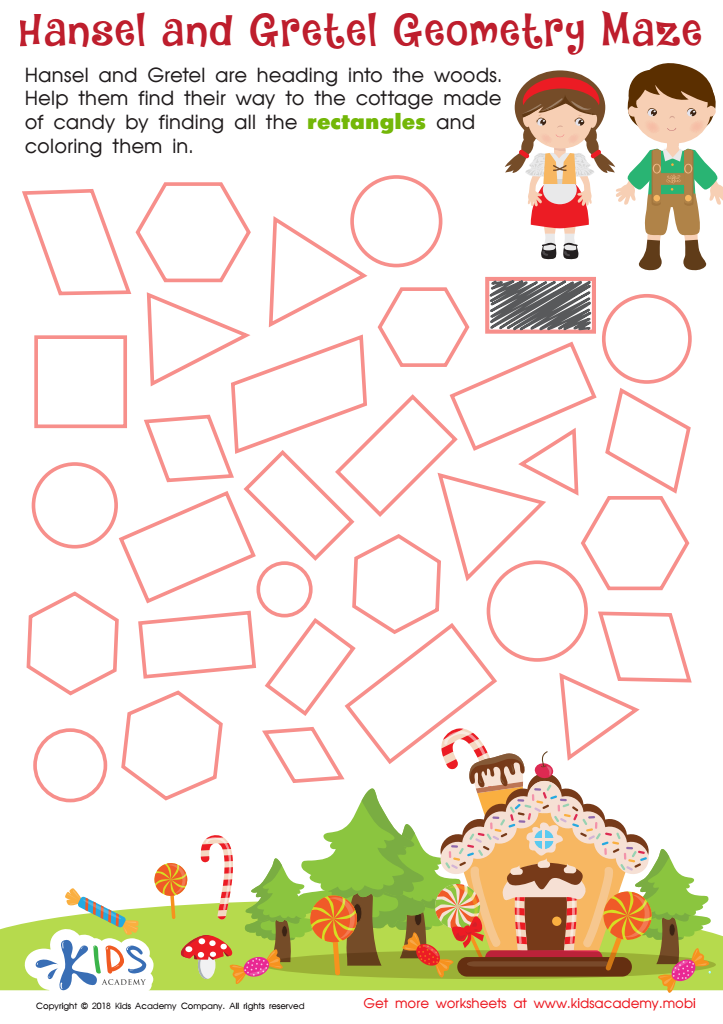

Hansel and Gretel Geometry Maze Worksheet
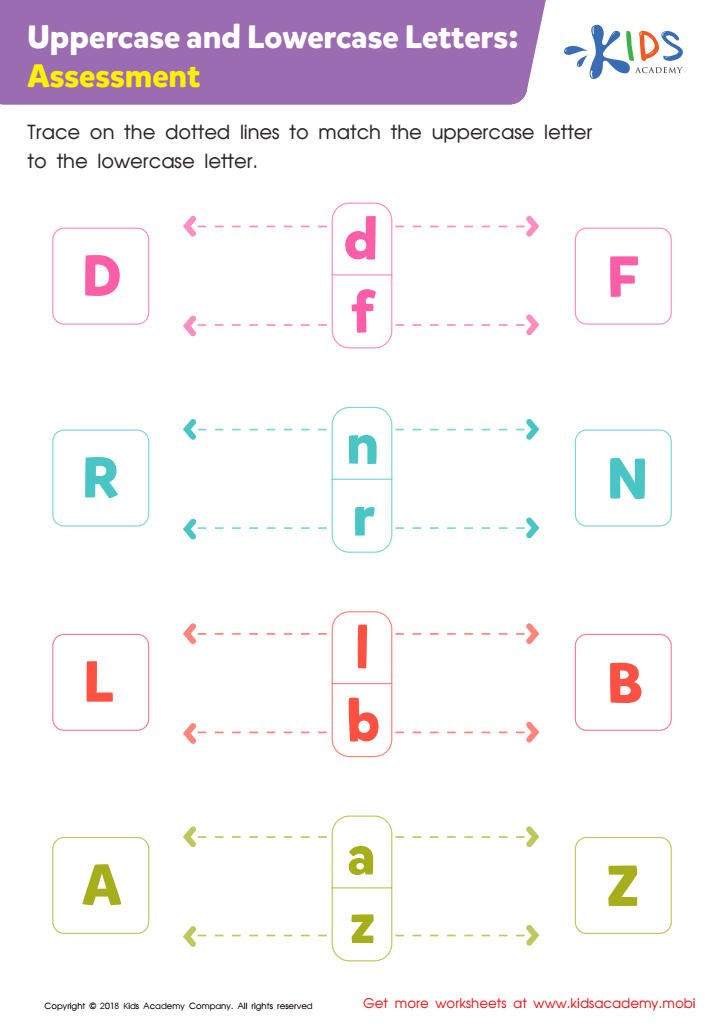

Uppercase and Lowercase Letters: Assessment Worksheet
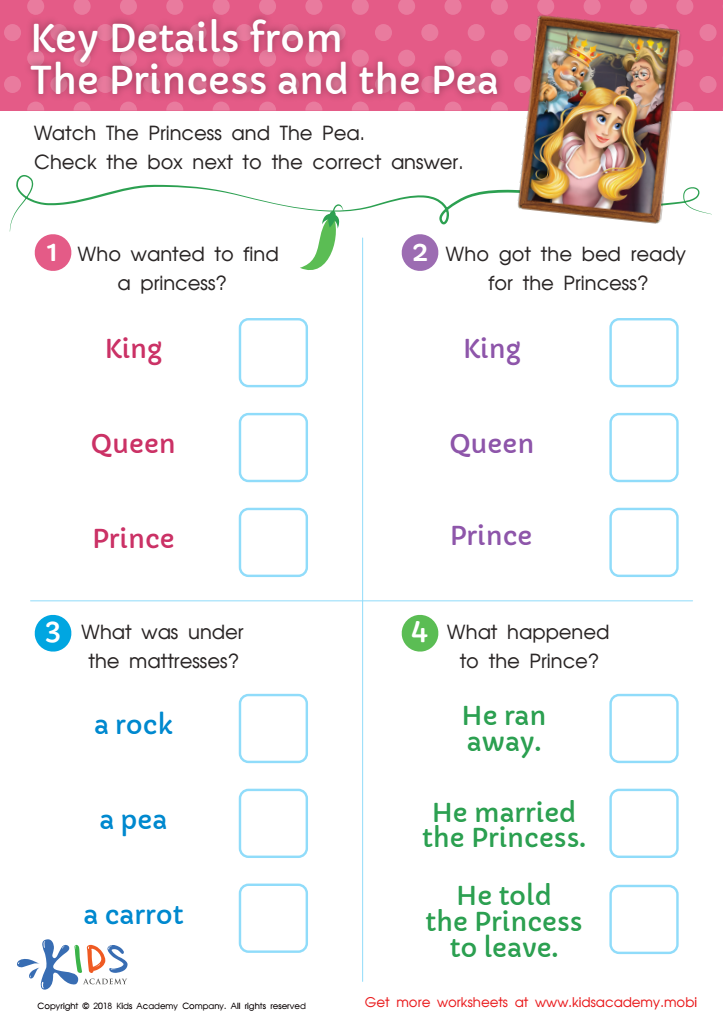

Key Details from the Princess and the Pea Worksheet
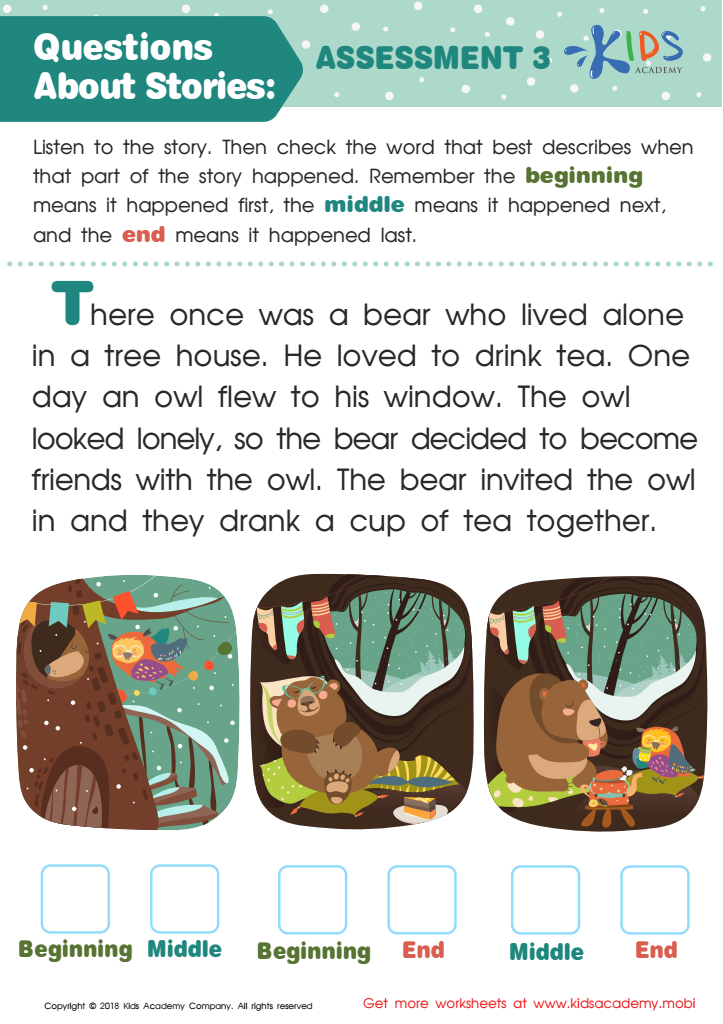

Questions About Stories: Assessment 3 Worksheet
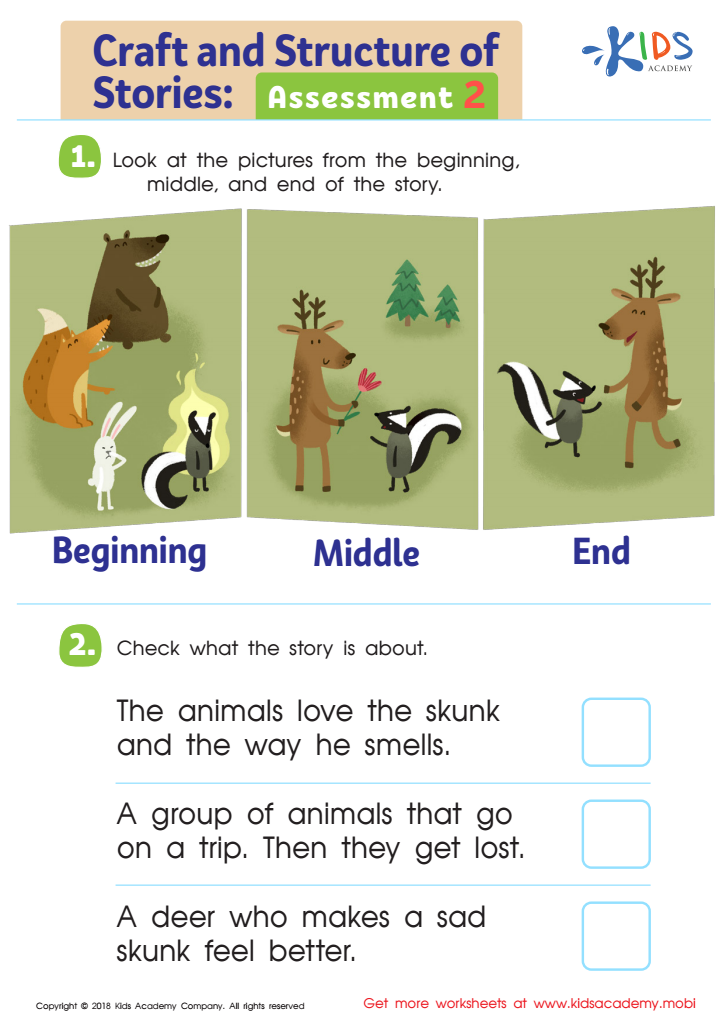

Craft and Structure of Stories: Assessment 2 Worksheet
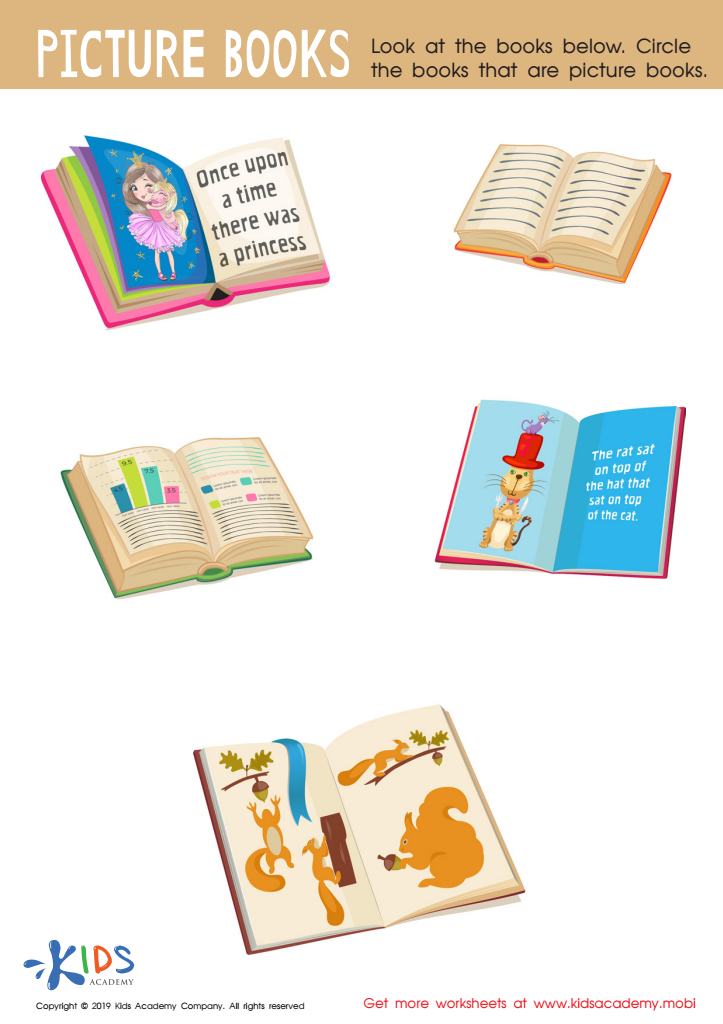

Picture Books Worksheet
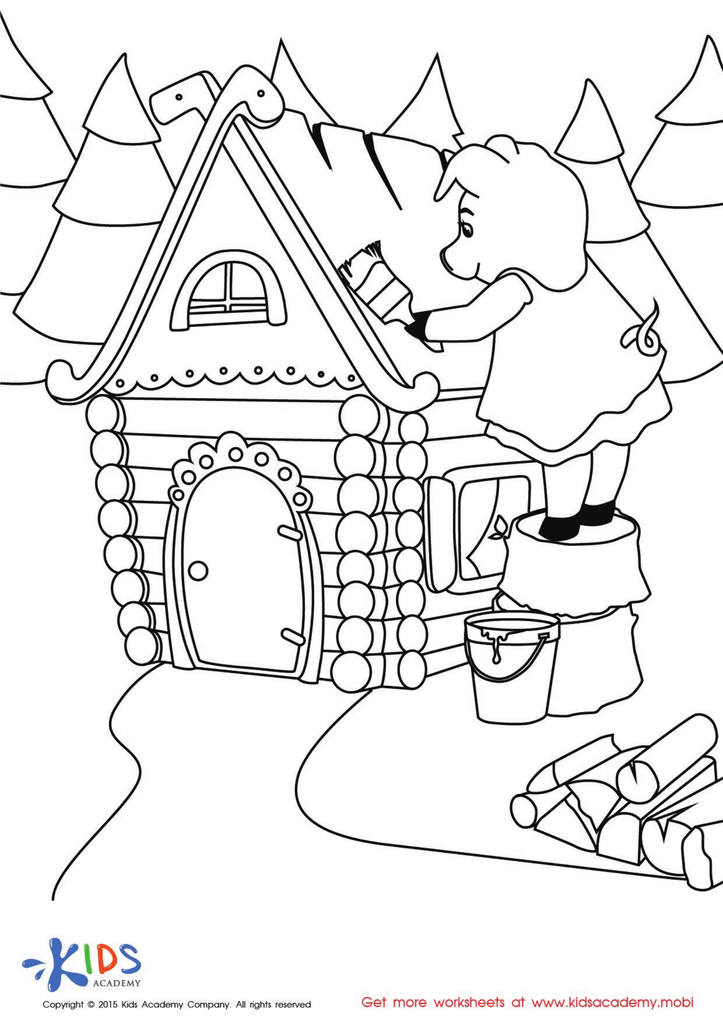

The Three Little Pigs Worksheet
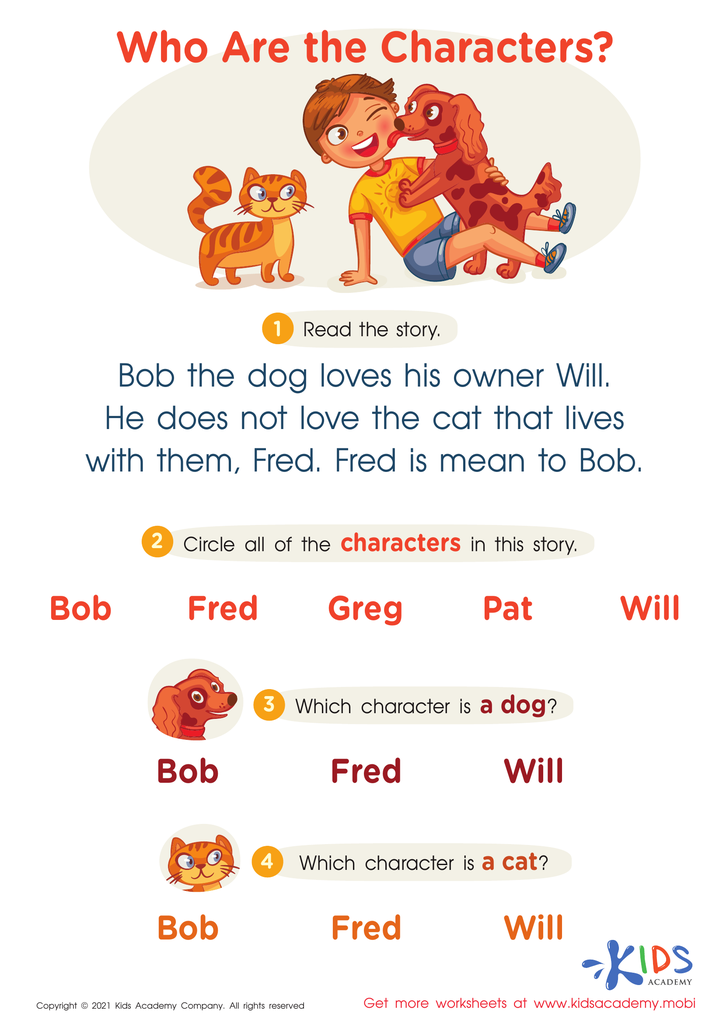

Who Are the Characters? Worksheet
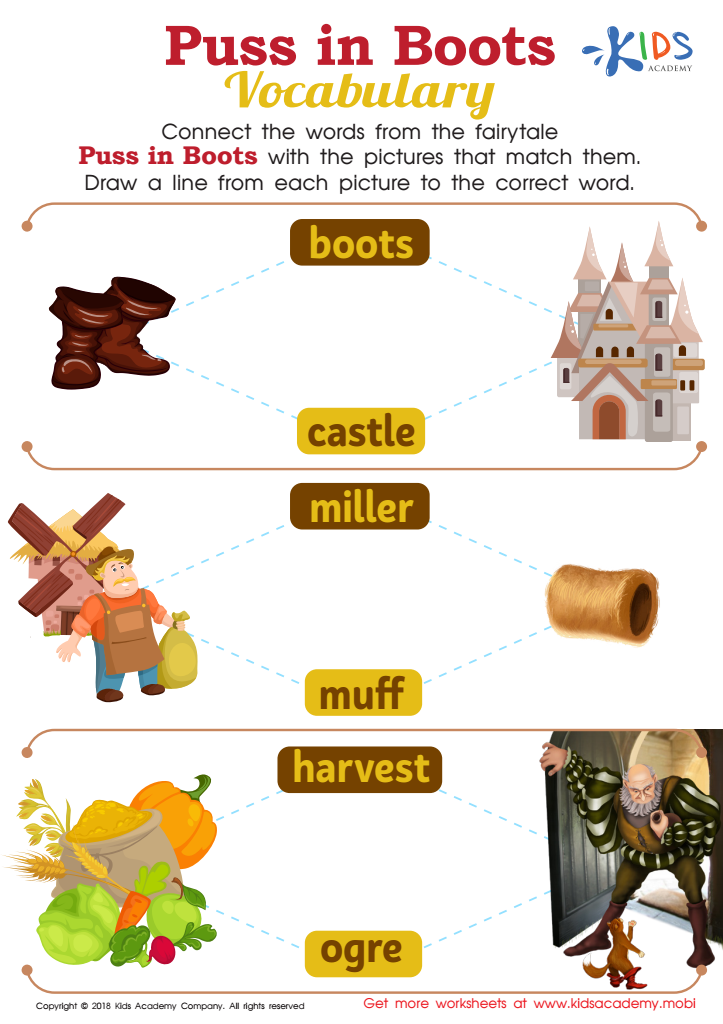

Puss in Boots Vocabulary Worksheet
Understanding story analysis for ages 3-6 is fundamental as it lays the groundwork for essential language and cognitive skills. Through evaluating the elements of a narrative, such as characters, setting, and plot, young children develop critical thinking abilities. These skills help children learn to predict outcomes, understand different perspectives, and strengthen their problem-solving capacities.
For parents and teachers, guiding children in story analysis not only enhances language acquisition but also encourages a lifelong love of reading. It deepens their comprehension, going beyond just “what” happens in a story to the “why” and “how,” fostering analytical and reflective thinking. Discussing stories can expand a child's vocabulary, as they encounter new words and phrases within context, making language learning more dynamic and engaging.
Additionally, story analysis helps strengthen emotional intelligence. Through discussing characters' feelings and motivations, children learn empathy and recognize their own emotions. It also provides opportunities to address moral lessons subtly embedded in stories, promoting ethical thinking and social values.
In essence, fostering story analysis at an early age ushers children into a rich world of literacy and emotional maturity that will benefit them throughout their educational journey and beyond. By caring about and prioritizing story analysis, parents and teachers uncover layers of cognitive, linguistic, and emotional development in young learners, paving the way for a well-rounded growth.

 Assign to My Students
Assign to My Students





.jpg)









